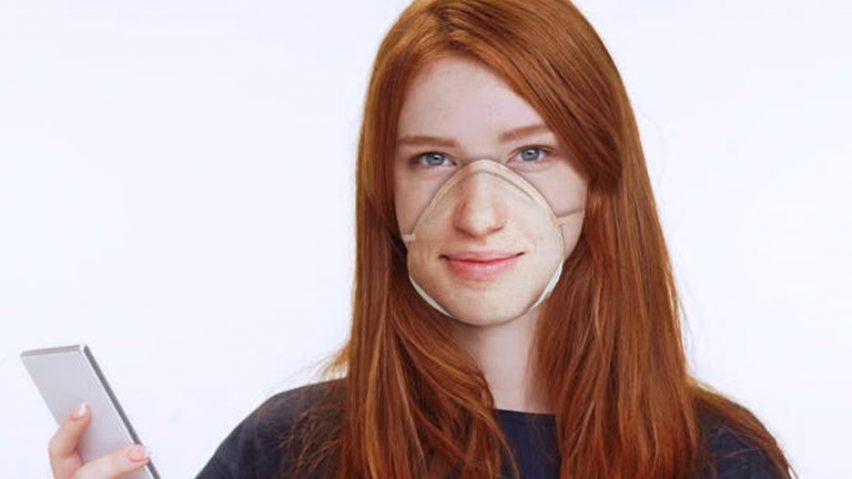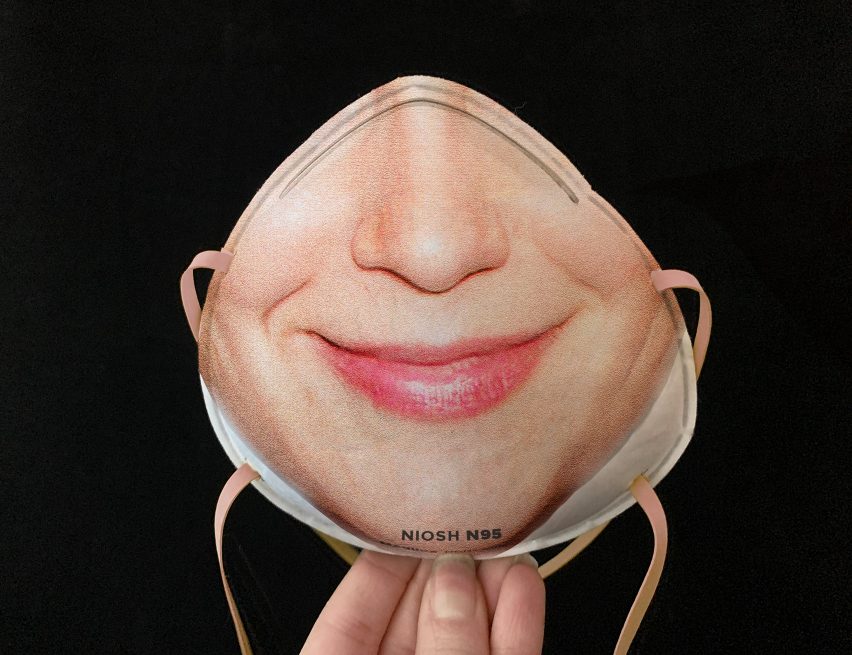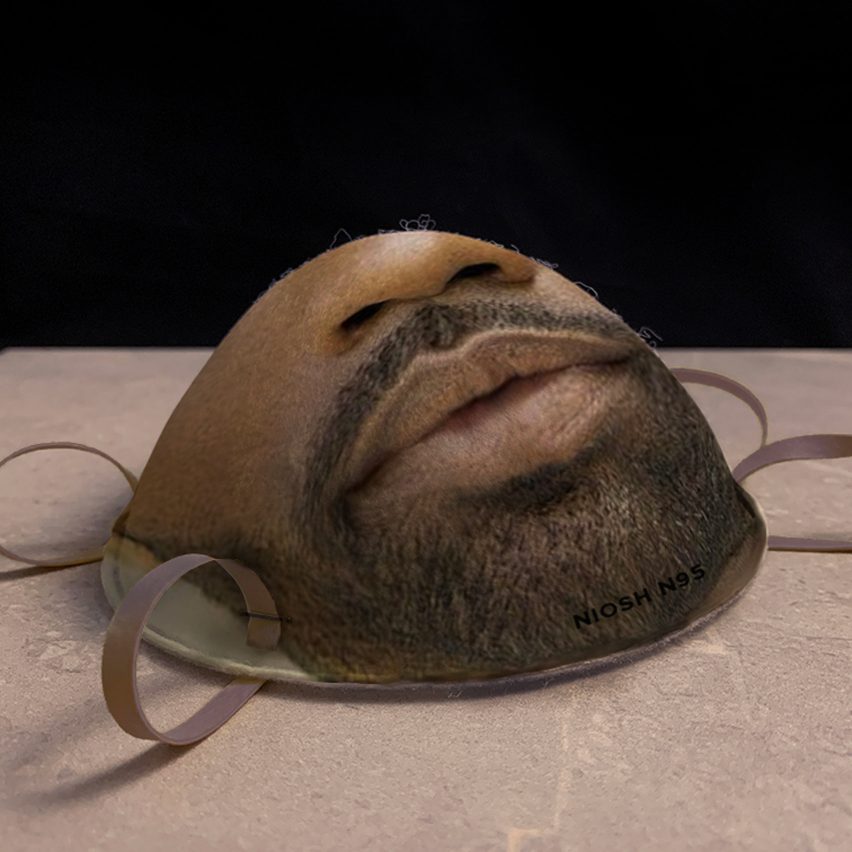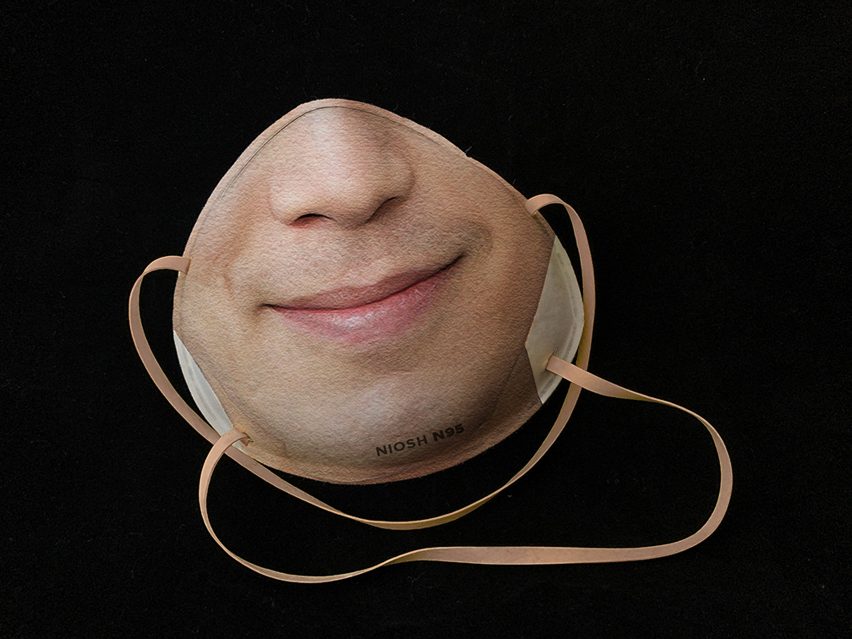
Facial-recognition masks let wearers unlock their phones
Artist Danielle Baskin has set up Resting Risk Face, a company that will print user's faces on masks so they can use facial recognition technology while wearing them.
Baskin, who is based in San Francisco, got the idea for the facial-recognition masks after seeing people using masks to try and protect against coronavirus.
"I was discussing whether or not N95 masks were effective as a protective measure against the coronavirus and someone brought up the fact that you couldn't unlock your phone while wearing one," Baskin told Dezeen.
"My immediate thought was to put a face on the mask."

N95 masks fit over the mouth and nose to protect the wearer from liquids and airborne particles. They can be used as part of an infection control strategy, but it is not yet known how effective they are against the spread of coronavirus.
Spikes in demand for N95 masks during the Covid-19 coronavirus outbreak have led to shortages of them.
"I was aware that it is a bit dystopian to sell a virus-related product, so I played into the dystopia," Baskin said. Resting Risk Face describes itself as a maker of "trendy dystopian product".
"I'm waiting to make them, until there's no longer a mask shortage, but in the interim, I'm running tests on different manufacturing techniques," said Baskin.

To print the facial-recognition masks, Baskin turns a 2D photo of someone's face into a 3D image to be printed on a mask.
"The new method I'm using creates a three-dimensional mask with a contoured face that actually does unlock phones that uses depth sensors," she explained. "You just have to set it as an additional face, since it's going to be a different shape than your own."
Test results. A contoured mask works as advertised. ✔️
My new look is: Tru Depth Hazmat Bro pic.twitter.com/k9bLyTXkA4
— Danielle Baskin (@djbaskin) February 22, 2020
The facial-recognition masks went viral on social media last week.
"The combination of the coronavirus, facial recognition on our phones, fear of surveillance, and late-stage capitalism really struck a chord with the internet," said Baskin.
"The most surprising thing to me is how this spread globally so quickly. People in South Korea, Latvia, France, and China reached out to me within a few days."
"Whether it's a wildfire, a virus, or a protest, I realise humans all over the world right now can relate to the symbol of the mask."

Respirator masks have been worn by residents in Australia as out-of-control wildfires caused atmospheric pollution. In Hong Kong protesters have also adopted masks as a way of evading facial-recognition technology.
Baskin hopes that the facial-recognition masks could be useful for people who have to wear them for work or because of illness.
"So many people in the medical industry have reached out saying that they'd love these, as well as cancer-patients, people with severe seasonal allergies, and children," she said.
"Faces might be one feature, but I think other unique prints would be great for those who need to wear masks on a daily basis for life."
Baskin specialises in complex printing for her other companies, which include printing logos on avocados and creating custom bicycle helmets.
Tragic situations can sometimes lead to design innovations to help keep people safe in future. After the Grenfell Tower Fire in the UK, designer Rimal Bhatt created a breathing apparatus mask that could help people evacuate from tower blocks.
Danish studio Kilo Design has made a mask for children in response to a UNICEF report that 300 million children live in places with the most toxic pollution levels.